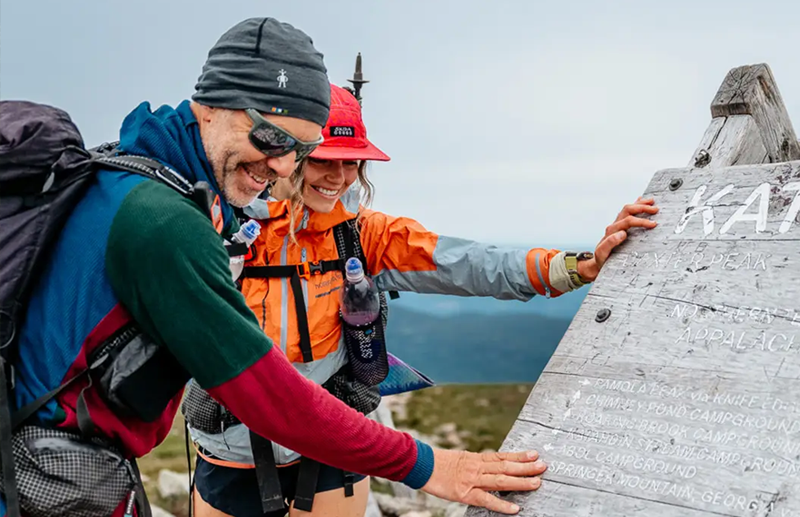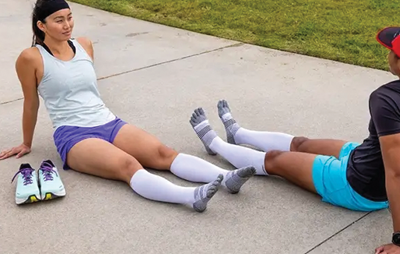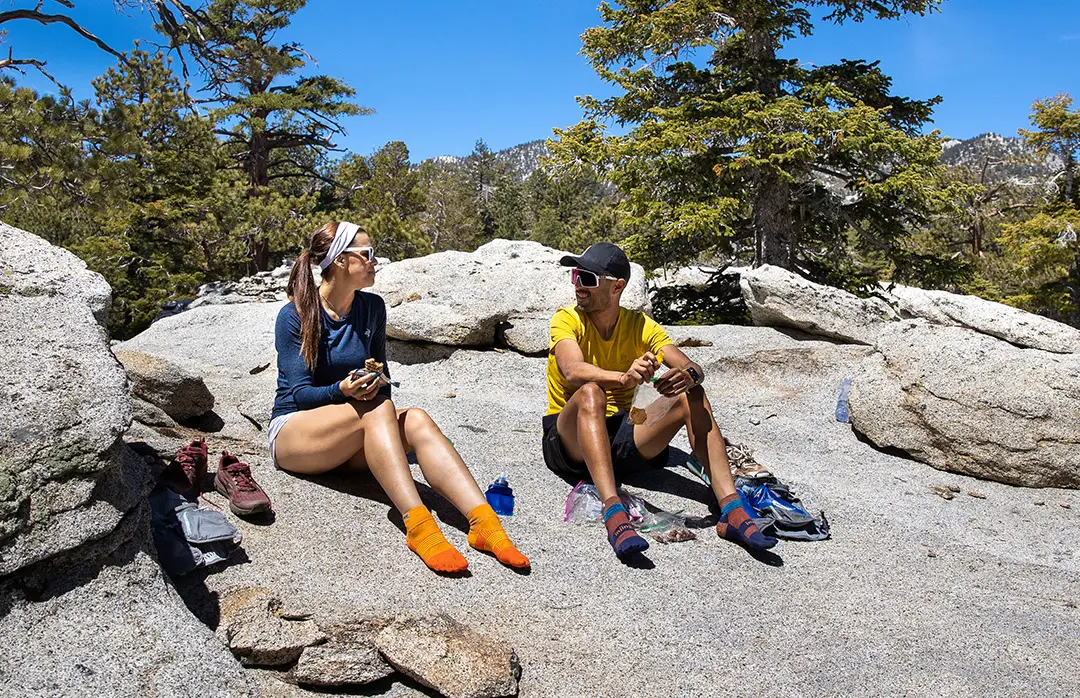Max’s Story
I first fell in love with farming when I was in college and seeking direction in my life. I was completely captivated by both its beauty and its difficulty. I loved the idea of working outside every day in every sort of weather. I loved the idea of using my body and doing something tangible. I have been farming for almost twenty years now, growing organic vegetables and raising grass-fed beef, feeding families in my community. Many of the things that first attracted me to farming are also what brought me to ultrarunning: the love of being outside, the love of hard work, the ability to appreciate small progress and if not a love for suffering, at least a bit of indifference to it.

These days, my wife and I run Brookfield Farm, a 50-acre mixed vegetable farm in Western Massachusetts. We grow vegetables for over 700 families, most of whom pick up their produce directly from our farm, and we also drop boxes off in the Boston area. After years spent primarily rock climbing, I have been trail running seriously for the past couple of years. I ran my first 50k in April of 2024 and in May, I completed my first 100-mile trail race at the Chesterfield Gorge Ultra. In that span of just over a year, I have run six ultra races and a smattering of very long training runs. The switch from climbing to ultrarunning has been heavily influenced by the location of our farm. It sits right at the eastern edge of the Holyoke Range, in the shadow of Long Mountain. Although quite tiny compared to the peaks out west or up north in New Hampshire, the Holyoke Range is an iconic feature of the valley we live in, and it provides me with easy access to miles and miles of trails right out my front door.

Farming is a lot of work. The weeds don’t take days off, the vegetables don’t care if you’re tired, the work just needs to get done. Days on the farm start early, and at times they can end late. We are outside working with our bodies on the hottest days of the year. The pace of the farm can be downright hectic at times as we hustle to accomplish everything we need to do. That being said, balancing running with farming and family life isn’t all that different for me than it is for anyone who has a demanding job and wants to pursue running goals. It takes a lot of planning and compromise, and it takes a lot of commitment. When I decided I wanted to run my first 100-miler at Chesterfield, a race in late May, I told myself I would do what I needed to do to get the miles in. No one was going to run those miles for me.
As much as I want to accomplish my running goals, I also want to be present for my family and need to be on the farm ready to go when the day starts. This has motivated me to do as much training as possible when my family, and a lot of the world, is sleeping. Farming for twenty years has made me accustomed to early mornings, so setting my alarm a few hours earlier to make sure I get a run in seems perfectly reasonable. When I started this a few years ago, I would wake up 45 minutes earlier than normal to run 3-4 miles. This spring, as I trained for the 100-miler, I would get up at 4 a.m. a few times a week and go for a 10-mile run. It’s easier to do this in the spring, since the farm day starts slightly later than it does in the summer—which is something incredibly important for me to consider. It is a lot easier for me to plan races and training around our peak season. That means I tend to focus more on races in the spring, late fall or even the winter when the farm is less busy.

I can remember one morning in late March: my alarm went off at 3:45 a.m., and I got up in the dark to get ready to run. It was pouring outside and although the daytime high was predicted to be mild and comfortable in the mid-50s, the temperature would only be about 39 degrees during my run. I was at the peak of my training and my legs were so tired from the accumulated fatigue of all of the miles. I was tired physically and mentally. I could hear the rain outside my window, even if I couldn’t see it since it was still dark. I didn’t want to go on this run at all. I wanted to go back to bed. But this window was the only time I had to run that day, so I did what I had to do and headed out for my run. My legs warmed up quickly, and the rain wasn’t nearly as bad once I was out in it as I imagined it would be. The 10 miles rolled by easily, and by the end of it, I felt great. Experiences like this turned out to be valuable as my race approached, and I realized it was going to be a steady downpour for the first 8 hours of the day.
Farm-wise, I can remember countless times sweating through the afternoon sun while picking tomatoes or harvesting onions during a heat advisory. I can remember working late into the evening in July getting the fields ready to plant only to realize I would be back out there on a tractor less than 12 hours later. I can remember being 20 years old and feeling like I knew how to work hard, only to meet the people who would teach me how to actually work hard and how to laugh while doing it. I am never going to be the fastest person out there, and I didn’t run when I was younger. I don’t happen to have the genetic gifts that make running feel easy and effortless, but I do know how to work.

I don’t think my training is the most exciting thing in the world. There are a lot of early mornings and a lot of long runs on the trails near my farm. It is something that I constantly have to balance with the other needs and obligations in my life. It is a lot of showing up, punching the clock and just trying to stay really consistent. It might seem like having a demanding job like farming would make ultrarunning harder, but for me it really feels like a gift. Farming has taught me how to be uncomfortable for long periods of time, and how to do things I don’t really want to do in the moment but feel are worthwhile in the long run. In my experience, the type of endurance required to be successful in farming is like the type of endurance that makes you successful in ultrarunning.

To thrive as a farmer and be able to do it for the long term, you have to learn how to find joy and laughter even in those hard moments. You have to be able to take a moment and enjoy how beautiful the moon looks even if you’re only seeing it because you had a really, really long day. It’s the same way you have to be able to stop and enjoy the beauty of the early morning light even if you’re only seeing it because you’ve already been running for 24 hours and you have a long way to go. If you can laugh when things feel really hard at mile 85, things may still feel really hard but at least you’re laughing. I am not sure if I love farming and ultrarunning because I work hard and don’t mind suffering, or if I work hard and don’t mind suffering because I love farming and ultrarunning.





